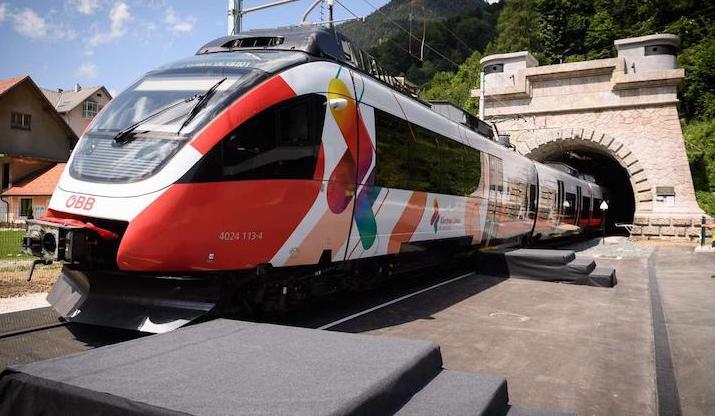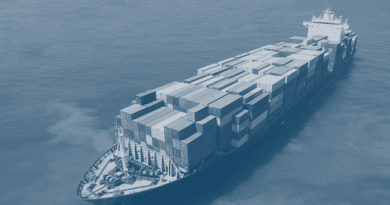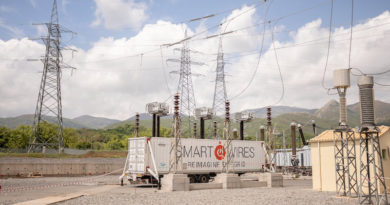
How can we make the European transport system more resilient to future crises?
Transport systems are complex and respond to crises in ways that are difficult to predict. In recent decades, transport has been heavily burdened with the stigma of being the biggest polluter. The growth in traffic levels has resulted in rising greenhouse gas emissions, which in turn contribute to the climate change that is causing a climate crisis. Slovenia has not joined the calls to officially declare a climate emergency. Instead, we have taken a series of measures at the political level in line with the transport development vision adopted by the Slovenian parliament in 2015, which envisages that Slovenia will “develop sustainable mobility of the population and sustainable supply for the economy by 2030”.
Our transport policy is rooted in our values, which we want to preserve and live by as citizens of Slovenia and the EU. Sustainable transport development, population mobility, supply to the economy, and safety and security of road users are the values we have taken into account in formulating the transport policy of the Republic of Slovenia.
How can individual countries and the EU prepare for future crises? As is the case for individuals, the transport system also has to respond in the event of a crisis. As an old piece of Oriental wisdom is said to say, a crisis represents both a danger and an opportunity. It is therefore vital to strengthen the system when there is no crisis. That is why the climate policy focuses both on climate change mitigation and adaptation. This involves investing in resilient transport infrastructure, hubs and terminals to enable intermodal transport and rapid responses to crises, strengthening the low-carbon transport and transport logistics, and developing and optimising the management of short supply chains. In order to address time requirements, the best response would be investing in research and development of new alternative techniques and technologies, liberalising and modernising transport, and creating a single transport market supported by digitalisation.
In recent years, Slovenia has adopted an ambitious national energy and climate plan, which will be upgraded next year to fall in line with the higher targets introduced by the FIT for 55 package. This plan is based on a long-term climate strategy that covers not only transport and energy, but also other areas affecting a society, such as environment, spatial planning, the economy and finance.
The Government of the Republic of Slovenia has developed a programme to phase out harmful subsidies that encourage the use of fossil fuels in transport.
Slovenia has also been very active in the development of infrastructure for alternative fuels and has become the first country in Europe to set up fast charging stations for electric vehicles across the entire motorway network. In addition, the Slovenian private sector is also at the forefront of the research and development of new technologies for both vehicles and charging stations.
Problems will not be solved if we do not change our way of thinking and remain stuck in the mentality that has caused the climate crisis in the first place. We must internalise the danger and, as individuals, take responsibility. We need to stop putting the blame on other people and the state. The climate crisis is not the only crisis we currently face, and we need to remember that crises are part and parcel of life and evolution. The COVID-19 crisis has put us to the test both at the individual and societal level. It has accelerated some processes and exposed certain shortcomings in society. COVID-19 has led to a significant increase in work from home and remote schooling. Both have a major impact on reducing the need for transport. In the transport of goods, similar results could be achieved by stepping up localisation, i.e. the use and purchase of local products and produce. What we need is a change in mentality, new paradigms of economic decision-making, and education, training and awareness-raising in the area of sustainable development. The latter is helped by events such as the following two, which are to take place in the week I am writing this. From Wednesday to Friday, Slovenia will become the European hub for the development of green technologies.
The cross-border Hydrogen Valley project, which brings together Slovenia, Croatia and Italy, will be presented in Nova Gorica, and at the end of the week the European Commission and the Ministry of Infrastructure will hold a free conference in Bled on promoting the development of low-carbon technologies.
The values of society shape the world and create the conditions within which – in the sustainable development context– we address the threats posed by crises that demand action be taken in the search for a global optimum in the economic, environmental, social and ethical spheres.
As it is a small country, Slovenia is aware that with its lean bureaucracy and highly qualified R&D staff, it can set an example in introducing positive changes in society, which will first be reflected in the transport and energy sectors.




